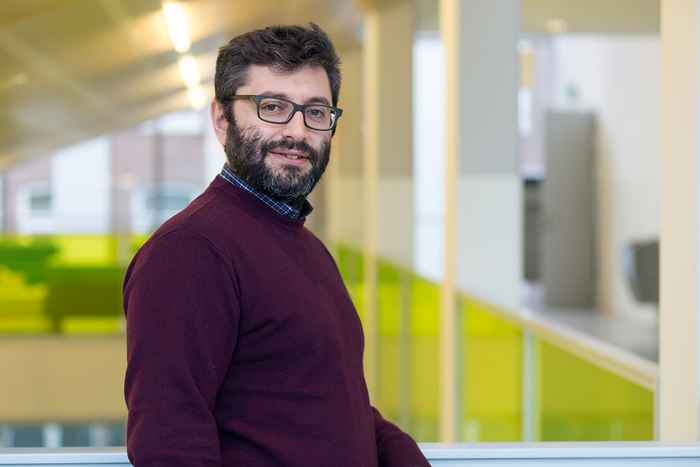Evangelos Kanoulas appointed Professor of Information Retrieval and Evaluation
16 August 2022

Finding the information you are looking for
Search engines like Google or DuckDuckGo help us to navigate the web, recommender systems like the ones from Netflix or Spotify recommend products or services to us, and digital assistants like Siri or Alexa help us in managing our everyday life. All these automated digital systems try to find information that is relevant specifically for an individual user.
The research of professor Evangelos Kanoulas focuses on the one hand on building smart algorithms that take into account the specific needs of an individual user, and on the other hand on evaluating the quality of these algorithms: how good are the search results? Are there any biases?
‘We want to boost personalization as much as possible’, says Kanoulas. ‘We build smart algorithms that try to understand your needs. The algorithms build up a profile of personal characteristics, like your background, your literacy level, your interests and your knowledge. We also investigate how smart algorithms can help you better by asking clarifying questions. Some important research questions in this domain are which questions the system should ask, when to ask them, and which response to give.’
A few years ago Kanoulas was one of the first researchers in the world to develop a conversational AI system that was able to ask clarifying questions in the domain of product search.
In one of the latest lines of research, Kanoulas is investigating how to make search algorithms robust against what he calls noise in human language. ‘This noise can come from a lot of sources’, says Kanoulas, ‘People sometimes ask things that are based on false memories. Automatic systems sometimes wrongly transcribe what a user said. And digital archives often contain mistakes because of mistakes in optical character recognition of handwriting.’
Teaching
As a professor of Information Retrieval and Evaluation Kanoulas is the group leader of the Information Retrieval Lab (IRLab). The IRLab focuses on information retrieval, recommender systems, and conversational AI. Kanoulas: ‘We make extensive use of machine learning techniques, especially deep neural networks, and we also investigate fairness, accountability and transparency of algorithms. Last but not least, we try to build efficient algorithms by using as little data as possible and thus reduce the energy consumption of the AI system.’
All these topics are covered in four UvA courses: basic information retrieval (for bachelor students), information retrieval and advanced topics in information retrieval (for master students), and recommender systems (also for master students).
Career
Kanoulas received a bachelor in applied informatics at the University of Macedonia in Thessaloniki (Greece) in 2002, a master in computer science at the Northeastern University in Boston (USA) in 2004 and a PhD in computer science at the same university in 2009.
After that, Kanoulas had a very international and diverse career with research appointments both in industry and in academia: Microsoft Research (UK), University College London (UK), University of Sheffield (UK) and Google Research (Switzerland). Since December 2014 he works at UvA.
In 2019 Kanoulas received an NWO VIDI Grant to conduct research on conversational search engines. In the same year he co-founded the company ELLOGON.AI which assists medical experts in selecting the right patients for cancer immunotherapy. The company uses AI to profile patients based on a biopsy of some cancerous tissue. If the biopsy shows a lot of immune cells around the cancer cells, that might make the chance higher that immunotherapy works.